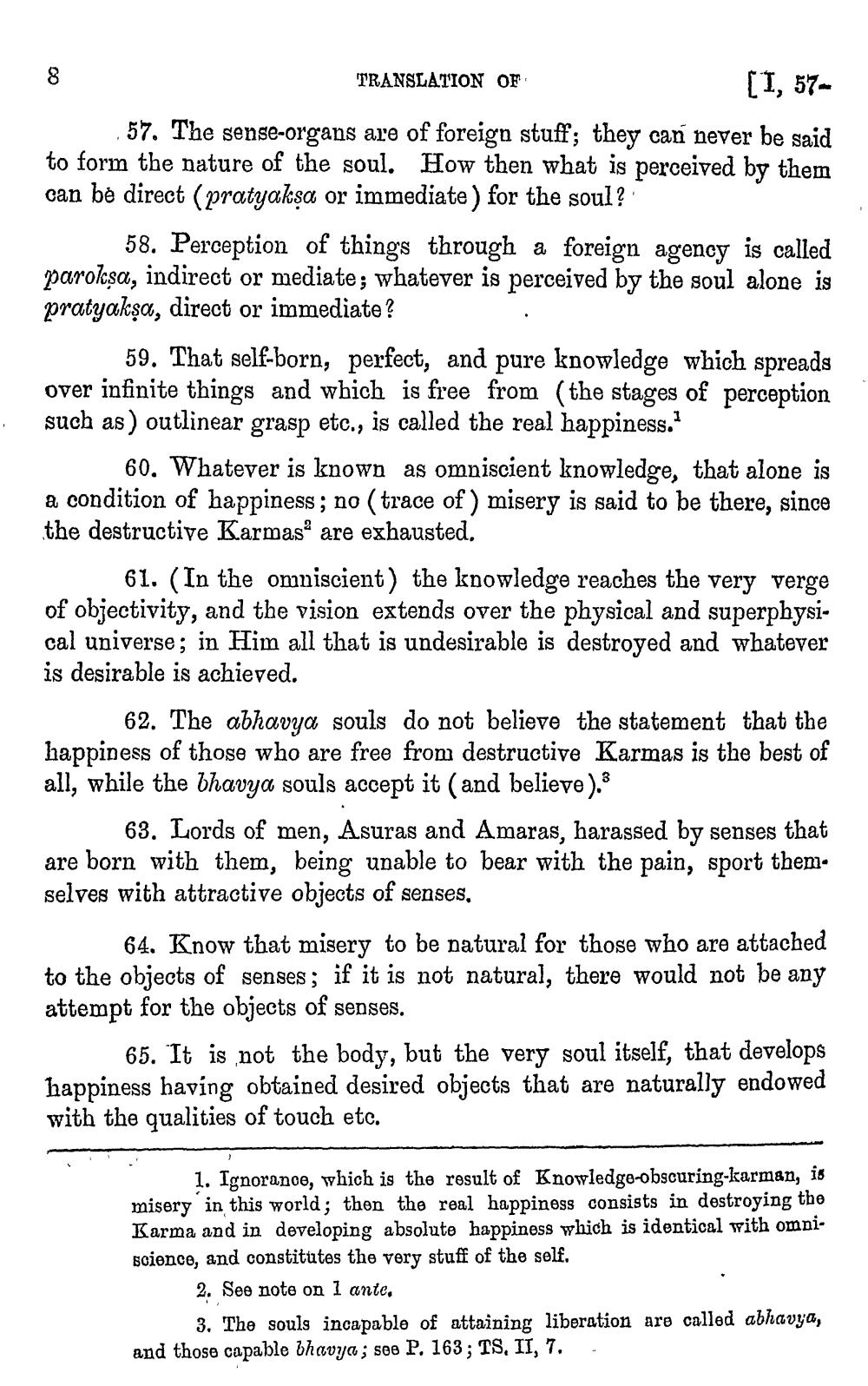________________
TRANSLATION OF
[I, 57. 57. The sense-organs are of foreign stuff; they can never be said to form the nature of the soul. How then what is perceived by them can be direct (pratyaksa or immediate) for the soul? :
58. Perception of things through a foreign agency is called paroksa, indirect or mediate; whatever is perceived by the soul alone is pratyakşa, direct or immediate ?
59. That self-born, perfect, and pure knowledge which spreads over infinite things and which is free from (the stages of perception such as ) outlinear grasp etc., is called the real happiness."
60. Whatever is known as omniscient knowledge, that alone is a condition of happiness; no (trace of) misery is said to be there, since the destructive Karmas' are exhausted.
61. (In the omniscient) the knowledge reaches the very verge of objectivity, and the vision extends over the physical and superphysical universe; in Him all that is undesirable is destroyed and whatever is desirable is achieved.
62. The abhavya souls do not believe the statement that the happiness of those who are free frona destructive Karmas is the best of all, while the bhavya souls accept it (and believe).
63. Lords of men, Asuras and Amaras, harassed by senses that are born with them, being unable to bear with the pain, sport them. selves with attractive objects of senses.
64. Know that misery to be natural for those who are attached to the objects of senses; if it is not natural, there would not be any attempt for the objects of senses.
65. It is not the body, but the very soul itself, that develops happiness having obtained desired objects that are naturally endowed with the qualities of touch etc.
1. Ignorance, which is the result of Knowledge-obscuring-karman, is misery in this world; then the real happiness consists in destroying the Karma and in developing absolute happiness which is identical with omniscience, and constitutes the very stuff of the self.
2. See note on 1 ante.
3. The souls incapable of attaining liberation are called abhavya, and those capable bhavya ; soe P. 163; TS, II, 7. .




